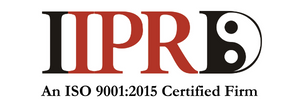Special Purpose Vehicle also known as Special Purpose Entity (SPE) is a separate legal entity…
Pharmaceutical Patents a Threat to India’s Drug Industry?
The Indian Pharmaceutical industry is one of the largest, ranked fourth in the world in respect to the production volume. Over the last three decades, the industry’s growth has resulted from no existence to a world leader in terms of production of high quality generic drugs.
Prior to 2005, no patent was granted on medicines in India, which resulted in the growth of the generic drugs manufacturing industry that helped treatment diseases like HIV/AIDS, tuberculosis, cancer, etc. around the world. This made India the prey of the larger pharmaceutical companies like the U.S. and Europe who believed that the patent protection for such drugs is necessary for further innovation.
As according to Medicines Sans Frontieres (MSF) report, “Sick people around the world depend on Indian producers to manufacture affordable generic versions of new medicines.” This has changed since after India became a signatory to WTO (World Trade Organisation).
Now, a large number of generic drugs are being patented in India including vaccines making it difficult for the industry to produce life-saving medicines. Various patient groups note that India’s ‘strict’ patent regime was one of the reasons why drugs are available at affordable prices in India. Cancer Patients Aid Association (CPAA) Chairman and Chief Executive, Y.K. Sapru quoted, “interventions and patent challenges by patient groups have helped to reduce the prices of many drugs. Still, cancer drugs like Herceptin are available in India only at a very high cost,” he says.
Whole game changed after the judgment was passed in the case of Pfizer Products granting the patent to produce such vaccine until 2026 damaging the country’s drug industry. It gave the company exclusive rights to distribute vaccines in India and blocked the manufacturing of such drug.
Also in the case of Novartis, after losing a 6-year legal battle where the Supreme Court concluded that small changes to its Leukaemia drug, Glivec did not deserve a new patent for the same as it would lead to “ever-greening” of such patents.
Matthew Rimmer, a professor of Intellectual Property and Innovation at the Queensland University of Technology believes that the Trump Administration is pressuring India about generic drug manufacturing as they have strong views about Intellectual Property and trade.
The U.S. market is pushing India to play by its rules but India does not want to yield ground to U.S. negotiators. CEO’s like Ian Read and other U.S. – based Pharma majors are worried that India allows the domestic companies to launch cheaper medicines under the clause of “compulsory licensing” under the Patents Act. It is pertinent to note that the U.S. companies call this practice, a patent violation while the Indian government calls it a legitimate right. Before the arrival of the patent regime in 2005, it was easier for Indian pharmaceutical companies to imitate the drugs discovered by MNC’s at a much cheaper price but since the new regime, the Indian companies have to rethink and invest more on Research & Development.
The question that persists is whether India should change its Patent Policy for Pharma practices in the world market or it should continue with the same approach that is beneficial to a larger section of people who can have access to life saving drugs as well as drugs of huge importance, at much affordable price, which in my opinion is a much larger issue.
Author: Ms. Tushita Dogra, intern at Khurana & Khurana, Advocates and IP Attorneys. Can be reached at [email protected]
References:
[1]http://www.abc.net.au/news/2017-09-28/what-india-pfizer-patent-decision-means-for-region-health/8981206
[2]https://www.usitc.gov/publications/332/EC200705A.pdf
[3]http://www.journals.uchicago.edu/doi/abs/10.1086/596603?journalCode=edcc
